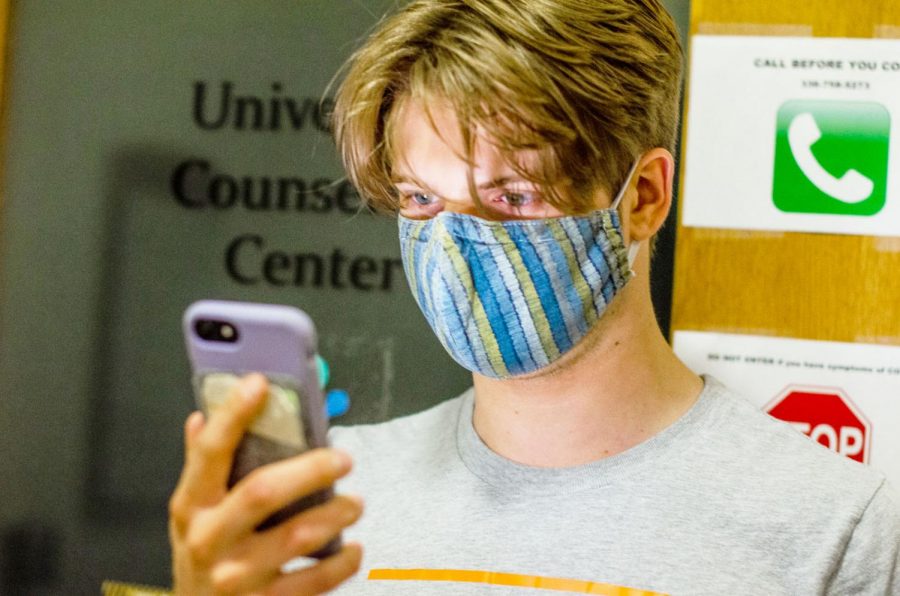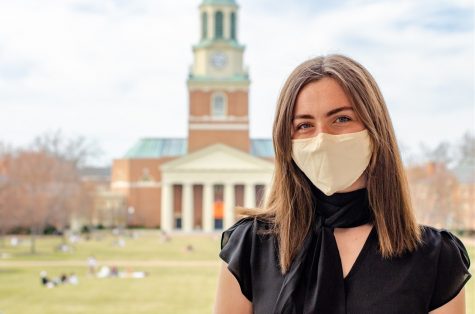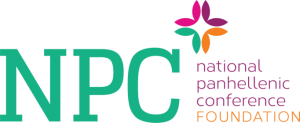UCC slated to lose two more counselors over the summer
The University Counseling Center, already short-staffed, sees even more departures
The University Counseling Center will lose two more counselors once the spring semester comes to a close, but Incoming Director Dr. Warrenetta Mann is confident the university can fill those positions by the beginning of the Fall 2021 Semester.
April 29, 2021
In the wake of COVID-19, mental health coverage has become more of a numbers game than ever before. This truth carries over from clinical practices to college campuses — Wake Forest is no exception.
In an article published by the Old Gold & Black back in October, multiple students expressed concern about the apparent lack of full-time staffers serving in the University Counseling Center (UCC).
When all 13 full-time, mental health professionals are employed by the UCC, the ratio of counselors to students at Wake Forest is 1:592. At the University of North Carolina, the ratio of counselors to students is 1:1,200. At Duke, the ratio is approximately 1:1,000.
So, if Wake Forest is numerically outperforming other elite North Carolina universities, why are some students so dissatisfied?
All year, there have been complaints made by students about the difficulty they face in obtaining timely appointments, qualifying for one-on-one counseling and scheduling recurring appointments.
These concerns were kickstarted with the loss of a full-time staffer in November 2019, which eventually snowballed into the introduction of an interim UCC director (also in 2019) and the loss of two full-time staff members in December 2020.
Assistant Vice President for Health & Wellbeing Dr. James Raper gently pushed back on these concerns, citing quantitative data that suggests students are being assisted at the same rate they were two academic years ago.
“This March, which is our last full, completed month, the number of clients we reached — or our cli- ent population — was a little under 1,000. Through March of last year — which was truncated by about three weeks because of Spring Break — it was 1,100, so about 120 off,” Raper said.
“So, the number of specialties and sessions provided from June through March are exactly the same as our last full year, 2018 to 2019. What that says is basically this: we are having more sessions per client.”
These spots were not filled due to the COVID-19 hiring freeze, and the counseling center has been forced to operate at 75% staff capacity ever since.
A temporary, full-time staff position was introduced and increase the number of counselors to assist the student body. With a search for a new director and staff members underway, the UCC depended on group therapy, limited one-on-one therapy and other wellness measures to provide mental health care to graduate and undergraduate students.
This semester, new UCC director Dr. Warrenetta Mann was hired and onboarded as the search for two open positions continued. While the search has narrowed, the two full-time positions remain unfilled. Additionally, at the end of this semester, two additional full-time staffers will be leaving the UCC to pursue other careers.
This leaves four positions open, but Assistant Vice President for Health & Wellbeing Dr. James Raper is confident that these four positions will be filled before the start of the 2021-22 school year.
“I have every confidence that all of those positions will be filled in anticipation of the fall,” Raper said. “Before the fall semester starts, we will have a full office.”
Mann, the newest addition to the UCC, shares Raper’s confidence.
“What we’ve seen in the first search is that we have a great pool of candidates,” Mann said. “I’m very hopeful and optimistic that we will have those positions filled by the fall.”
In response to student concerns, both Raper and Mann hinted that the solution to improving mental health on Wake Forest’s campus is not hiring more counselors, but improving the preventative measures that ensure that mental health crises do not reach dangerous levels.
“Here is the thing with bringing in more people — no matter how many more counselors we bring on, there’s not ever going to be enough to catch up with what everybody’s needs are,” Mann said. “We could all benefit from counseling.”
“I think that we will really be strategizing around how to work smarter and how to do things that quickly get to [meet] the needs of students in the community,” Mann continued. “Things that are not necessarily one-on-one therapy. Preventive and intervening measures are important when it comes to preserving mental health, too.”
According to Mann, these strategies could look like more frequent collaboration between the UCC and the Office of Wellbeing, a more robust offering of group therapy sessions and more opportunities for student leadership.















